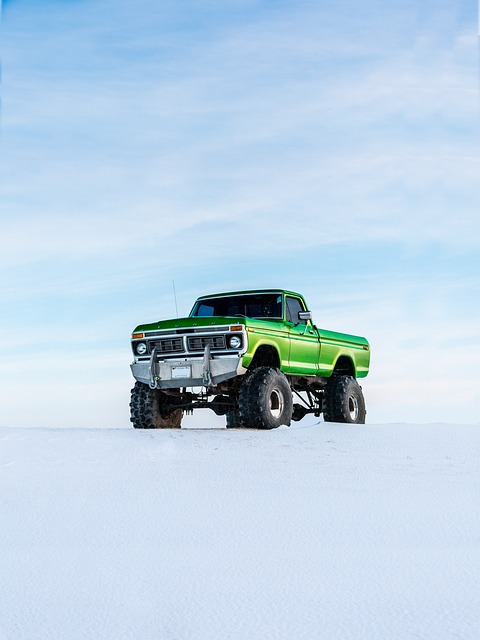ABS sensors are crucial components in modern vehicles, preventing wheel lockup and enhancing safety during emergency stops and slippery roads. For McAllen off-road enthusiasts, understanding and selecting appropriate ABS sensors is essential for navigating challenging terrain safely. These sensors ensure optimal braking force distribution to each wheel, preventing rollovers on rocky trails or muddy conditions. When choosing sensors, consider specific off-road demands and terrains; reputable suppliers in McAllen can offer expert guidance on reliable, durable, and precise sensors for customer safety and satisfaction while trail driving.
“Discover the vital role of ABS (Anti-lock Braking System) sensors in enhancing off-road safety. This comprehensive guide offers a deep dive into these essential components, catering to McAllen’s off-road enthusiasts and local shops. From understanding their basic function to exploring their impact on off-road vehicles, we cover it all. Learn about sensor selection, installation best practices, and troubleshooting tips for keeping your McAllen off-road shop’s vehicles in peak condition. Stay ahead of the curve with this essential read.”
- Understanding ABS Sensors: A Fundamental Overview
- The Role of ABS Sensors in Off-Road Vehicles
- Choosing the Right ABS Sensor for Your McAllen Off-Road Shop
- Installation, Maintenance, and Troubleshooting Tips
Understanding ABS Sensors: A Fundamental Overview

ABS sensors, short for Anti-lock Braking System sensors, are critical components in modern vehicles designed to enhance safety during emergency stops or slippery road conditions. These sensors play a pivotal role in preventing wheel lockup by monitoring each wheel’s speed and providing real-time data to the vehicle’s computer. When a wheel approaches the point of no return, where braking force could cause it to stop rotating altogether, the ABS sensor triggers a series of actions to reduce brake pressure and allow the wheel to continue rolling, thereby maintaining steering control and preventing skidding.
For off-road enthusiasts visiting mcallen off road shops in search of superior vehicle performance and durability, understanding ABS sensors is essential. These sensors contribute significantly to a vehicle’s ability to navigate challenging terrain safely. Whether tackling rocky trails or navigating through muddy conditions, ABS sensors help drivers maintain control by ensuring each wheel receives the optimal amount of braking force. This precision is particularly valuable in extreme off-road scenarios where the difference between stability and a rollover can be minimal.
The Role of ABS Sensors in Off-Road Vehicles

ABS sensors play a pivotal role in enhancing safety and control for off-road vehicles, especially in challenging terrain. These advanced components are designed to detect and respond to wheel speed variations, enabling the Anti-lock Braking System (ABS) to prevent wheels from locking up during hard braking or on slippery surfaces. For avid off-roaders frequenting McAllen off-road shops for upgrades, ABS sensors offer a crucial edge in navigating treacherous trails.
By continuously monitoring each wheel’s speed, ABS sensors allow drivers to maintain control and stability, even when traversing rough landscapes or climbing steep inclines. This technology is particularly valuable in off-road scenarios where unexpected obstacles, mud, or uneven terrain can cause sudden changes in wheel speed. The ability to prevent wheel lockup enhances braking performance and gives drivers a safer margin of error when exploring the great outdoors.
Choosing the Right ABS Sensor for Your McAllen Off-Road Shop

When it comes to selecting the ideal ABS (Anti-lock Braking System) sensor for your McAllen off-road shop, several factors come into play. These sensors are pivotal in enhancing vehicle safety, especially during extreme off-road conditions where traditional braking systems might struggle. McAllen off-road enthusiasts and mechanics should look for sensors designed to withstand rugged environments, offering durability and precision.
Consider the specific requirements of your off-road vehicles. Different terrains demand diverse sensor capabilities. For instance, a sensor suitable for mudding adventures may not perform optimally in desert conditions. Research and consult with reputable suppliers who understand the unique challenges faced by McAllen’s off-road community. They can guide you in choosing sensors that provide reliable performance, ensuring your customers’ safety and satisfaction on the trail.
Installation, Maintenance, and Troubleshooting Tips

Installation: ABS sensors are crucial components that require meticulous installation for optimal performance. McAllen off-road shops often recommend regular checks and alignments to ensure they’re correctly positioned and functioning. The process involves mounting the sensors on the wheels or brake discs, then connecting them to the vehicle’s anti-lock braking system. It’s essential to follow manufacturer guidelines and use the right tools to avoid damage.
Maintenance: Regular maintenance is key to keeping ABS sensors in top shape. McAllen off-road shops suggest periodic inspections, including checking for wear and tear, corrosion, or any signs of damage. Keeping the sensors clean and free from debris is also vital. Some basic maintenance tasks can be performed at home, but it’s advisable to consult a professional for more complex procedures to ensure accurate diagnostics and repairs.
ABS sensors play a vital role in enhancing safety for both on and off-road vehicles. In McAllen’s bustling off-road shops, choosing the right sensor is crucial for optimal performance. By understanding these sensors’ fundamental functions and implementing proper maintenance, off-road enthusiasts can navigate treacherous terrains with confidence. Remember that regular checks and quick troubleshooting can save time and ensure a smooth ride, making your adventures more memorable than problematic.
